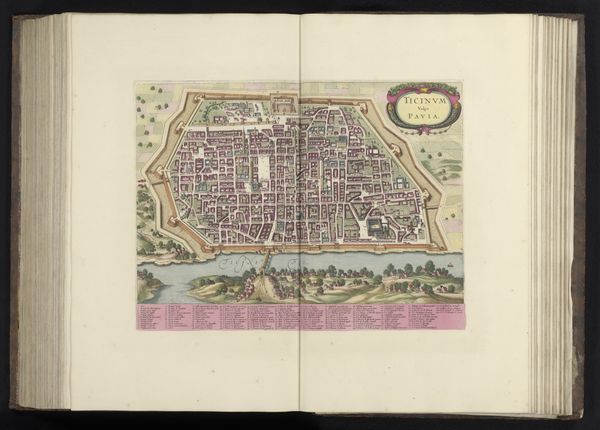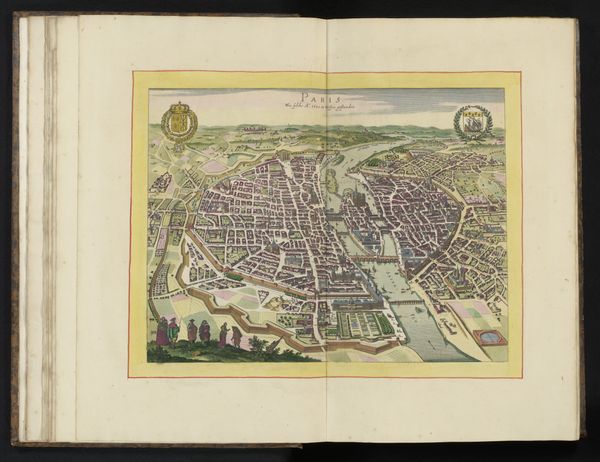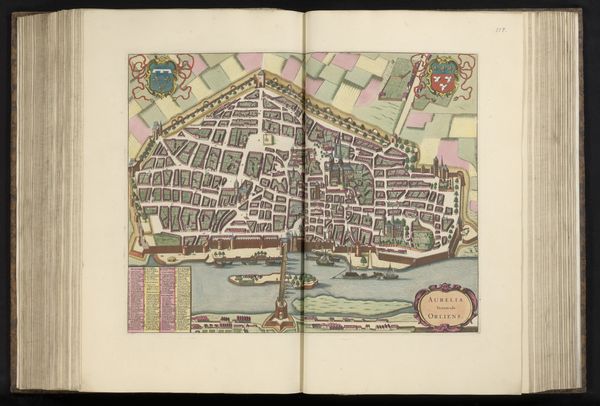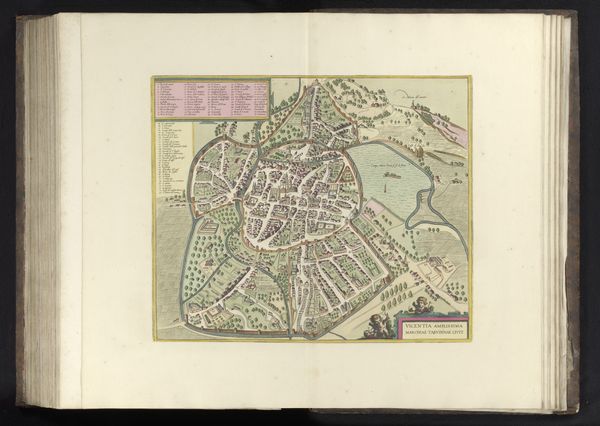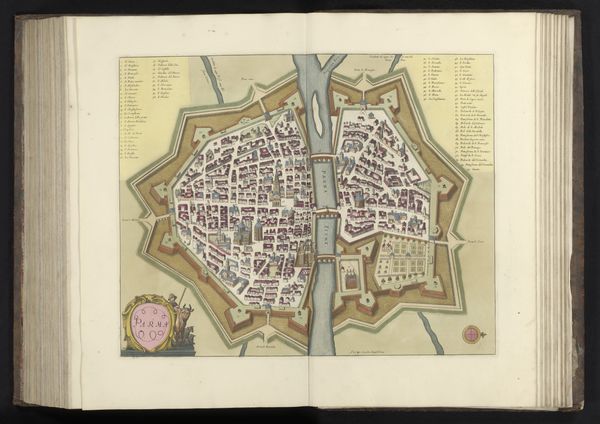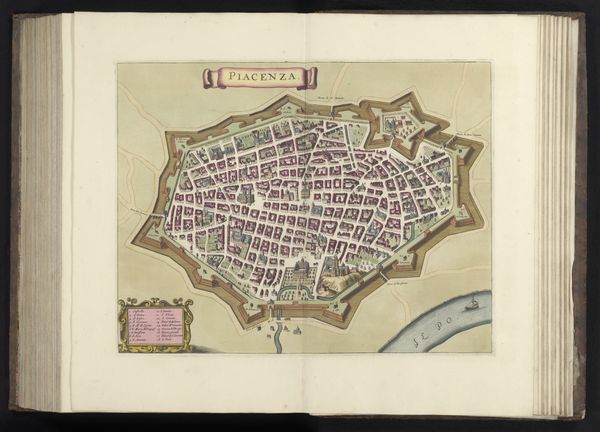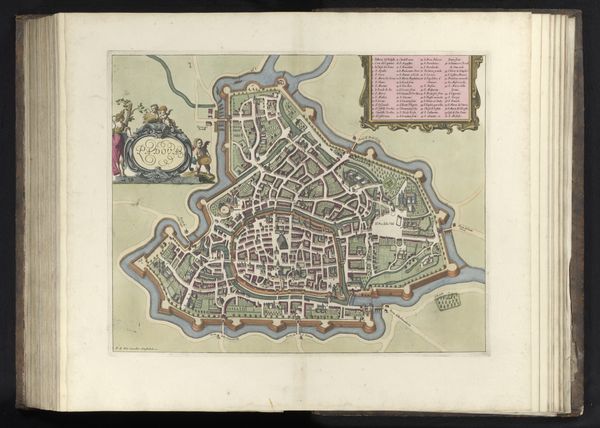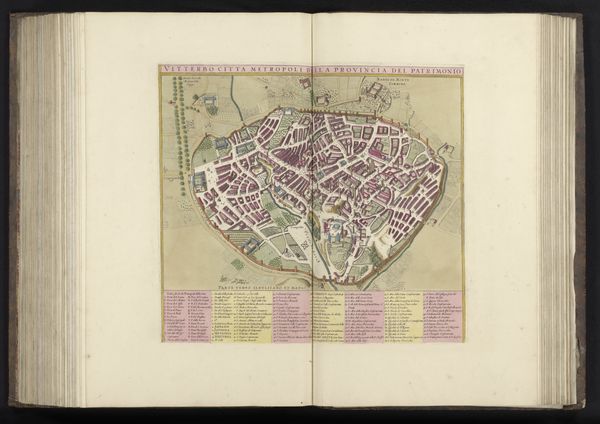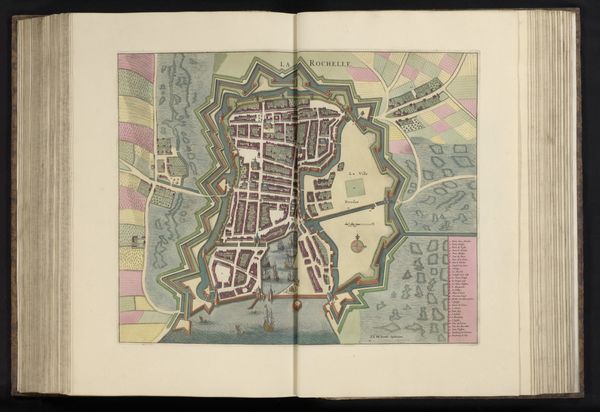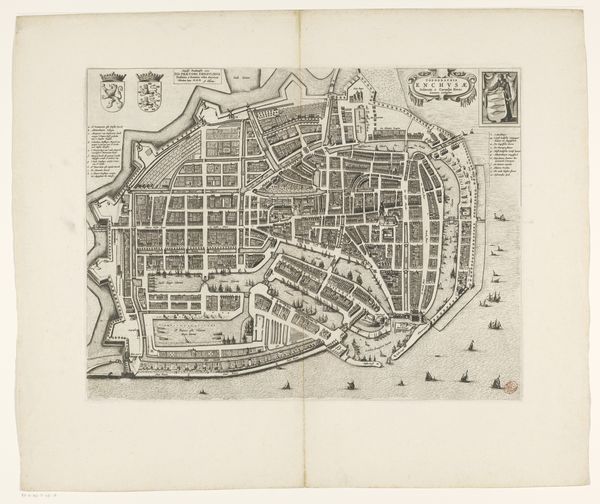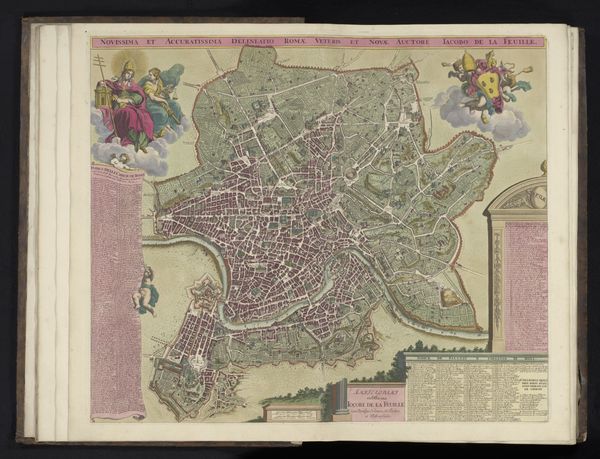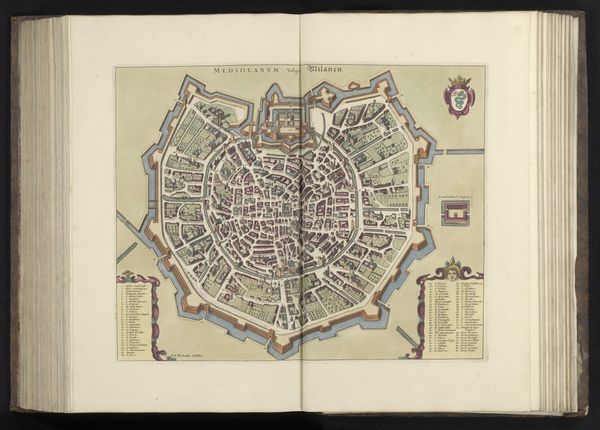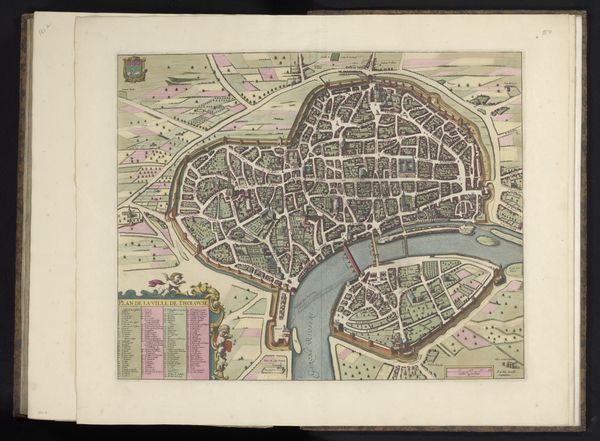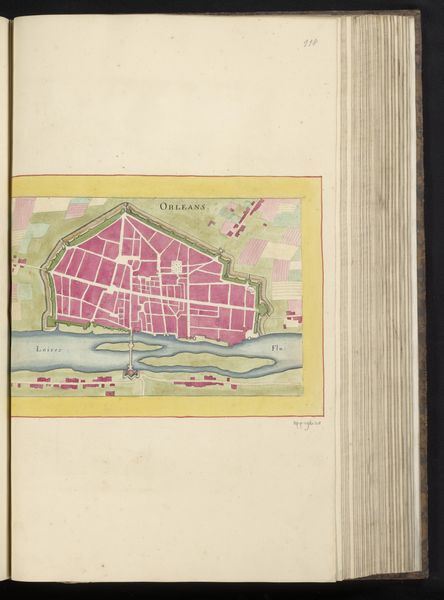
Gezicht op Ferrara in vogelvluchtperspectief Possibly 1617 - 1717
0:00
0:00
#
aged paper
#
ink paper printed
#
sketch book
#
personal sketchbook
#
pen-ink sketch
#
ink colored
#
pen and pencil
#
pen work
#
sketchbook drawing
#
sketchbook art
Dimensions: height 361 mm, width 455 mm
Copyright: Rijks Museum: Open Domain
Wenceslaus Hollar made this print of Ferrara, Italy, using etching and engraving, techniques that gained popularity because they allowed for relatively quick reproduction. The image's clarity and detail arise from Hollar's skilled manipulation of metal plates, acid, and ink. He painstakingly incised lines to define the city's layout, from the imposing fortifications to the carefully planned streets and gardens within. Look closely, and you will see the range of tones achieved by varying the density and depth of the lines. Hollar’s print would have been bound with others in an atlas, intended for elite consumption. The print situates Ferrara within a network of power and trade, subtly reflecting the city’s economic and political importance. It also speaks to the rise of cartography as a science, and the growing demand for detailed, accurate representations of the world. Ultimately, this print invites us to consider the labor and skill involved in its creation, and how it straddles the line between practical tool and art object.
Comments
No comments
Be the first to comment and join the conversation on the ultimate creative platform.
